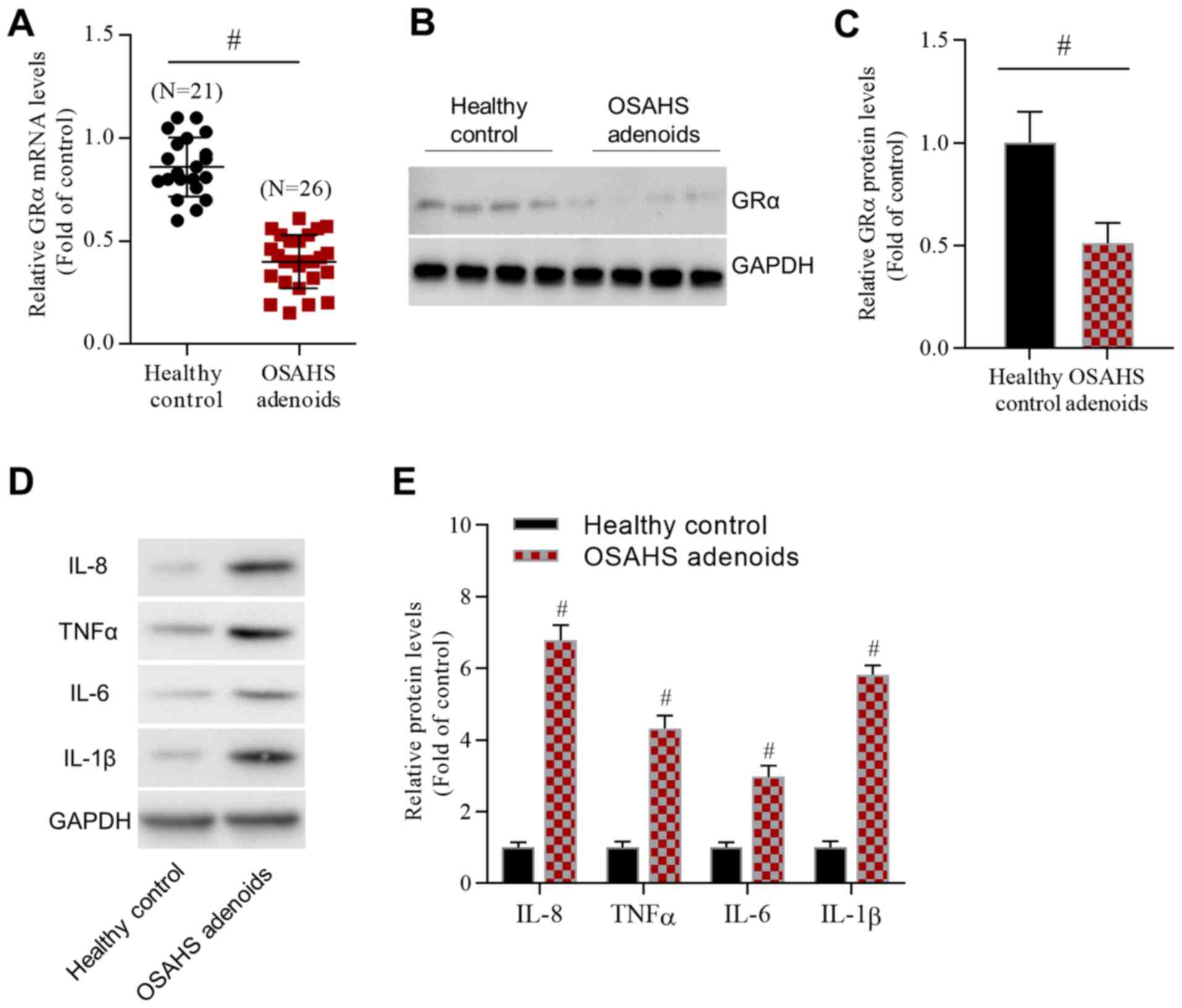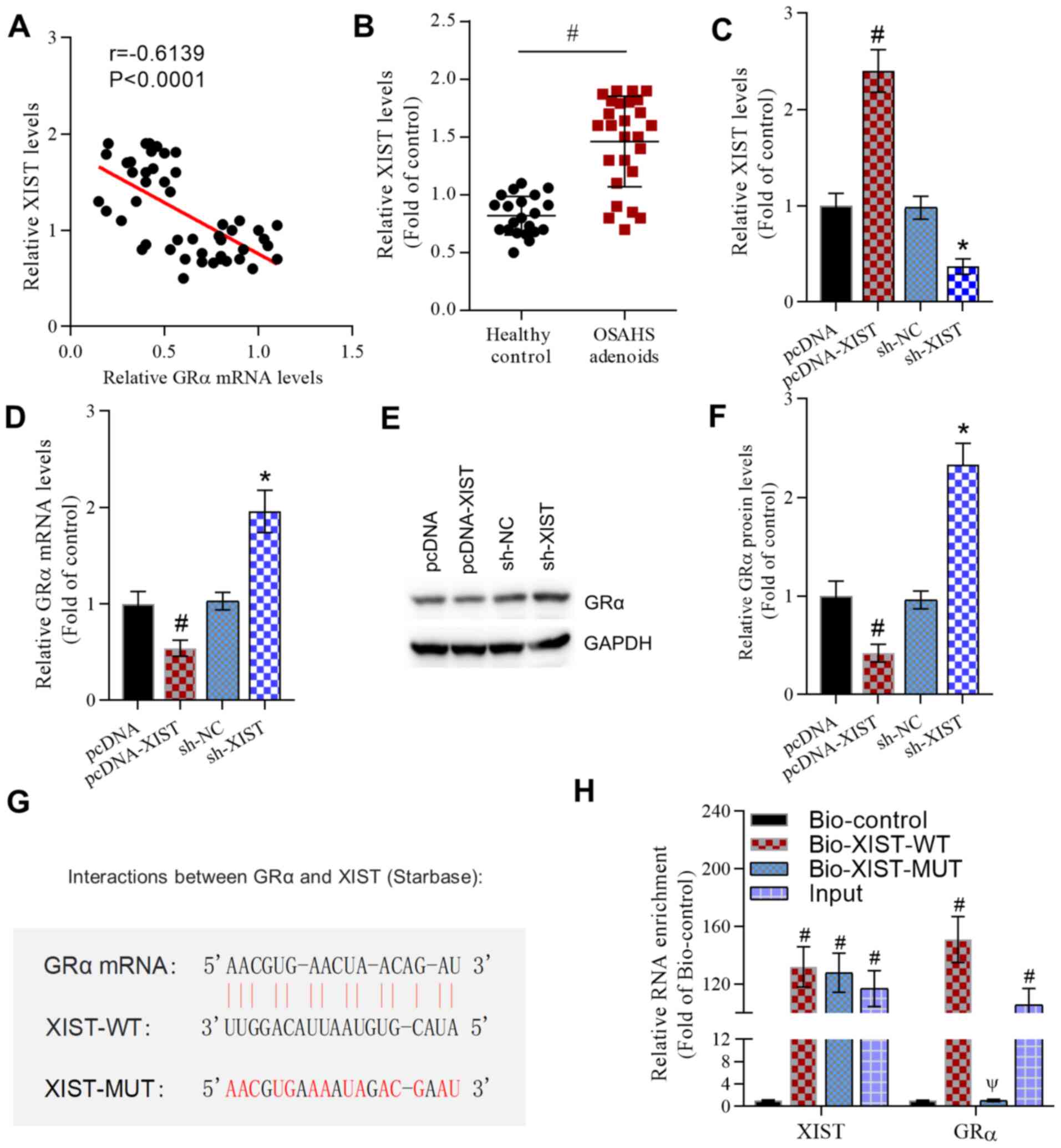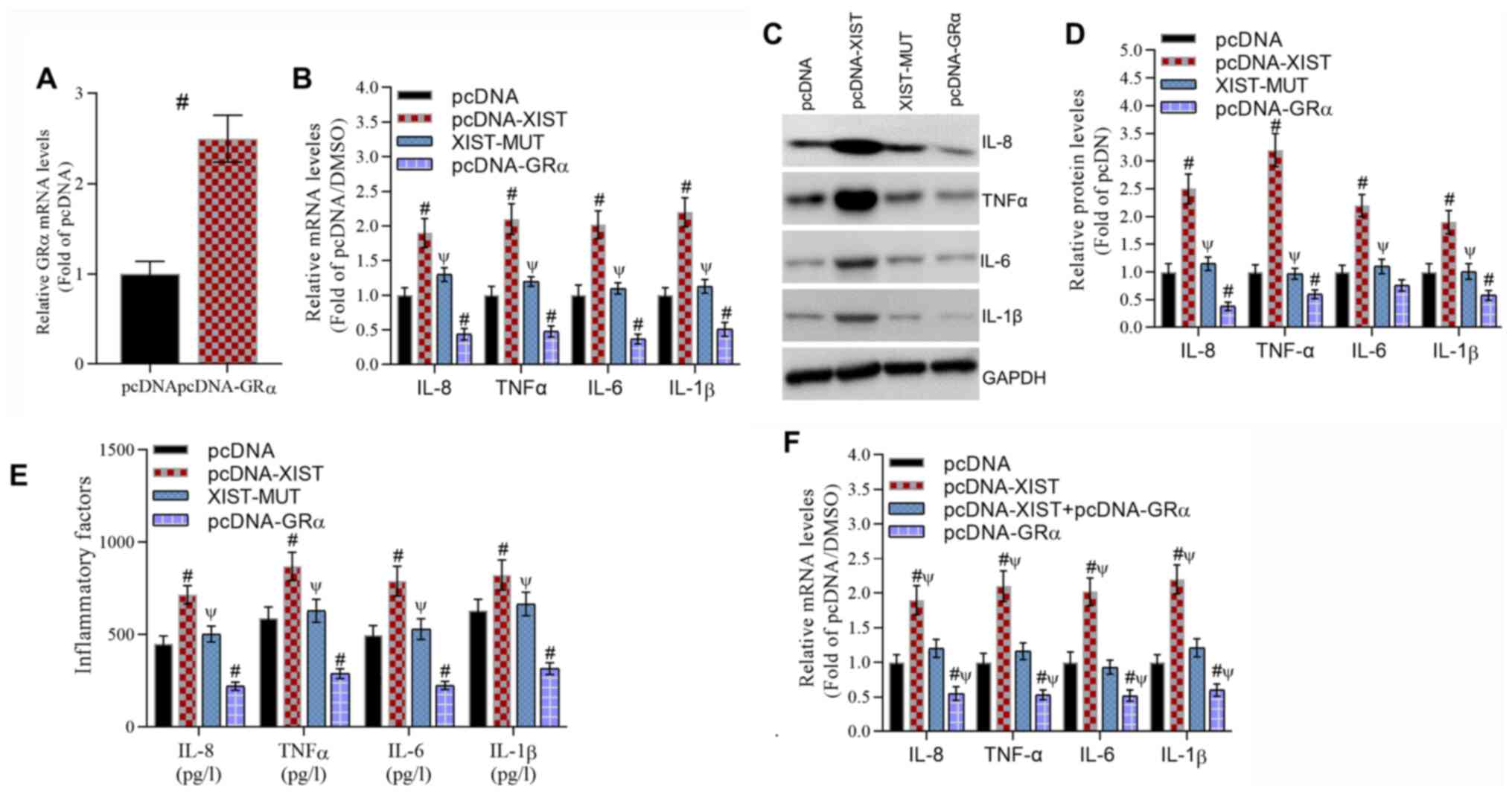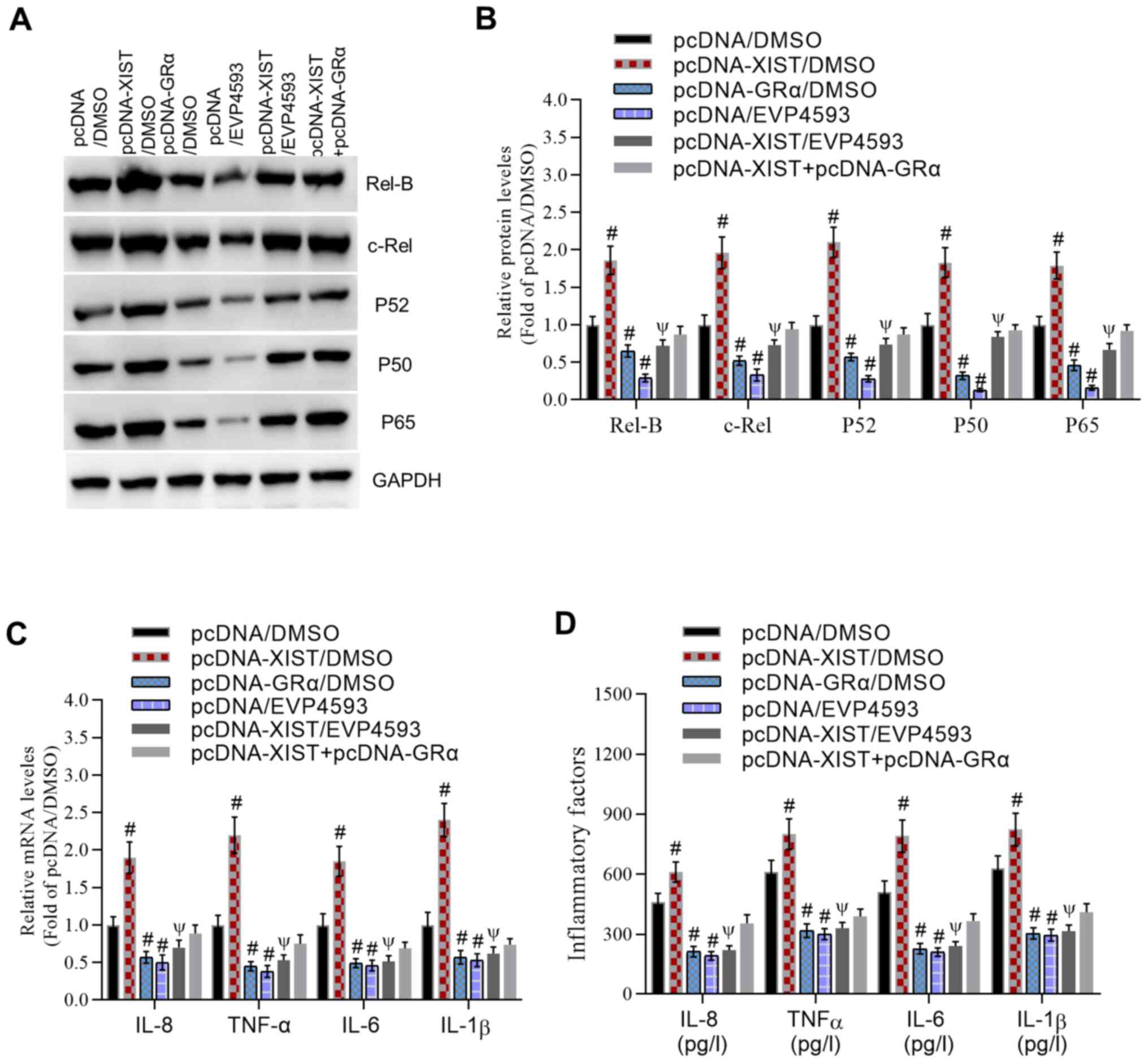|
1
|
Zhang L, Ou X, Zhu T and Lv X: Beneficial
effects of estrogens in obstructive sleep apnea hypopnea syndrome.
Sleep Breath. 24:7–13. 2020.PubMed/NCBI View Article : Google Scholar
|
|
2
|
Gonzaga C, Bertolami A, Bertolami M,
Amodeo C and Calhoun D: Obstructive sleep apnea, hypertension and
cardiovascular diseases. J Hum Hypertens. 29:705–12.
2015.PubMed/NCBI View Article : Google Scholar
|
|
3
|
Jordan AS and McEvoy RD: Gender
differences in sleep apnea: Epidemiology, clinical presentation and
pathogenic mechanisms. Sleep Med Rev. 7:377–389. 2003.PubMed/NCBI View Article : Google Scholar
|
|
4
|
Morong S, Hermsen B and de Vries N:
Sleep-disordered breathing in pregnancy: A review of the physiology
and potential role for positional therapy. Sleep Breath. 18:31–37.
2014.PubMed/NCBI View Article : Google Scholar
|
|
5
|
Snyder B and Cunningham RL: Sex
differences in sleep apnea and comorbid neurodegenerative diseases.
Steroids. 133:28–33. 2018.PubMed/NCBI View Article : Google Scholar
|
|
6
|
Evans RM: The steroid and thyroid hormone
receptor superfamily. Science. 240:889–895. 1988.PubMed/NCBI View Article : Google Scholar
|
|
7
|
Ren R, Oakley RH, Cruz-Topete D and
Cidlowski JA: Dual role for glucocorticoids in cardiomyocyte
hypertrophy and apoptosis. Endocrinology. 153:5346–5360.
2012.PubMed/NCBI View Article : Google Scholar
|
|
8
|
Kim HK, Jeong YJ, Song IS, Noh YH, Seo KW,
Kim M and Han J: Glucocorticoid receptor positively regulates
transcription of FNDC5 in the liver. Sci Rep.
7(43296)2017.PubMed/NCBI View Article : Google Scholar
|
|
9
|
Kuo T, Chen TC, Yan S, Foo F, Ching C,
McQueen A and Wang JC: Repression of glucocorticoid-stimulated
angiopoietin-like 4 gene transcription by insulin. J Lipid Res.
55:919–28. 2014.PubMed/NCBI View Article : Google Scholar
|
|
10
|
Chen X and Li JR: Glucocorticoid receptor
expression in the tonsils of children with obstructive sleep apnea
hypopnea syndrome. Genet Mol Res. 15:2016.PubMed/NCBI View Article : Google Scholar
|
|
11
|
Choi SW, Kim HW and Nam JW: The small
peptide world in long noncoding RNAs. Brief Bioinform.
20:1853–1864. 2019.PubMed/NCBI View Article : Google Scholar
|
|
12
|
Barth DA, Slaby O, Klec C, Juracek J,
Drula R, Calin GA and Pichler M: Current concepts of non-coding
RNAs in the pathogenesis of non-clear cell renal cell carcinoma.
Cancers (Basel). 11(1580)2019.PubMed/NCBI View Article : Google Scholar
|
|
13
|
Rapicavoli NA, Qu K, Zhang J, Mikhail M,
Laberge RM and Chang HY: A mammalian pseudogene lncRNA at the
interface of inflammation and anti-inflammatory therapeutics.
Elife. 2(e00762)2013.PubMed/NCBI View Article : Google Scholar
|
|
14
|
Carpenter S, Aiello D, Atianand MK, Ricci
EP, Gandhi P, Hall LL, Byron M, Monks B, Henry-Bezy M, Lawrence JB,
et al: A long noncoding RNA mediates both activation and repression
of immune response genes. Science. 341:789–792. 2013.PubMed/NCBI View Article : Google Scholar
|
|
15
|
Richardson AL, Wang ZC, De Nicolo A, Lu X,
Brown M, Miron A, Liao X, Iglehart JD, Livingston DM and Ganesan S:
X chromosomal abnormalities in basal-like human breast cancer.
Cancer Cell. 9:121–132. 2006.PubMed/NCBI View Article : Google Scholar
|
|
16
|
McKiernan PJ, Molloy K, Cryan SA,
McElvaney NG and Greene CM: Long noncoding RNA are aberrantly
expressed in vivo in the cystic fibrosis bronchial epithelium. Int
J Biochem Cell Biol. 52:184–191. 2014.PubMed/NCBI View Article : Google Scholar
|
|
17
|
Ma M, Pei Y, Wang X, Feng J, Zhang Y and
Gao MQ: LncRNA XIST mediates bovine mammary epithelial cell
inflammatory response via NF-kappaB/NLRP3 inflammasome pathway.
Cell Prolif. 52(e12525)2019.PubMed/NCBI View Article : Google Scholar
|
|
18
|
Sadeghi A, Rostamirad A, Seyyedebrahimi S
and Meshkani R: Curcumin ameliorates palmitate-induced inflammation
in skeletal muscle cells by regulating JNK/NF-kB pathway and ROS
production. Inflammopharmacology. 26:1265–1272. 2018.PubMed/NCBI View Article : Google Scholar
|
|
19
|
Nedjai B, Hitman GA, Church LD, Minden K,
Whiteford ML, McKee S, Stjernberg S, Pettersson T, Ranki A, Hawkins
PN, et al: Differential cytokine secretion results from p65 and
c-Rel NF-κB subunit signaling in peripheral blood mononuclear cells
of TNF receptor-associated periodic syndrome patients. Cell
Immunol. 268:55–59. 2011.PubMed/NCBI View Article : Google Scholar
|
|
20
|
Ruland J: Return to homeostasis:
Downregulation of NF-κB responses. Nature Immunol. 12:709–714.
2011.PubMed/NCBI View
Article : Google Scholar
|
|
21
|
Lai JL, Liu YH, Liu C, Qi MP, Liu RN, Zhu
XF, Zhou QG, Chen YY, Guo AZ and Hu CM: Indirubin inhibits
LPS-induced inflammation via TLR4 abrogation mediated by the NF-κB
and MAPK signaling pathways. Inflammation. 40:1–12. 2017.PubMed/NCBI View Article : Google Scholar
|
|
22
|
Yancy CW, Jessup M, Bozkurt B, Butler J,
Casey DE Jr, Drazner MH, Fonarow GC, Geraci SA, Horwich T, Januzzi
JL, et al: 2013 ACCF/AHA guideline for the management of heart
failure: A report of the American College of Cardiology
Foundation/American Heart Association Task Force on Practice
Guidelines. J Am Coll Cardiol. 62:147–239. 2013.PubMed/NCBI View Article : Google Scholar
|
|
23
|
Ye XH, Chen H, Yu Q and Zhu QL: Liver X
receptor gene expression is enhanced in children with obstructive
sleep apnea-hyperpnoea syndrome and cyclooxygenase-2 (COX-2) is
correlated with severity of obstructive sleep apnea-hypopnea
syndrome (OSAHS). Med Sci Monit. 23:3261–3268. 2017.PubMed/NCBI View Article : Google Scholar
|
|
24
|
Guo Z, Wang Y, Yang J, Zhong J, Liu X and
Xu M: KAI1 overexpression promotes apoptosis and inhibits
proliferation, cell cycle, migration, and invasion in
nasopharyngeal carcinoma cells. Am J Otolaryngol. 38:511–517.
2017.PubMed/NCBI View Article : Google Scholar
|
|
25
|
Pathare AD and Deshpande AS: HGV-HCV/HBV
co-infection in India: A pilot study. Asian J Transfus Sci.
7:48–50. 2013.PubMed/NCBI View Article : Google Scholar
|
|
26
|
Livak KJ and Schmittgen TD: Analysis of
relative gene expression data using real-time quantitative PCR and
the 2(-Delta Delta C(T)) method. Methods. 25:402–8. 2001.PubMed/NCBI View Article : Google Scholar
|
|
27
|
Yu X, Wang D, Wang X, Sun S, Zhang Y, Wang
S, Miao R, Xu X and Qu X: CXCL12/CXCR4 promotes inflammation-driven
colorectal cancer progression through activation of RhoA signaling
by sponging miR-133a-3p. J Exp Clin Cancer Res.
38(32)2019.PubMed/NCBI View Article : Google Scholar
|
|
28
|
Burman D: Sleep disorders: Sleep-related
breathing disorders. FP Essent. 460:11–21. 2017.PubMed/NCBI
|
|
29
|
Shenoda BB, Tian Y, Alexander GM,
Aradillas-Lopez E, Schwartzman RJ and Ajit SK: miR-34a-mediated
regulation of XIST in female cells under inflammation. J Pain Res.
11:935–945. 2018.PubMed/NCBI View Article : Google Scholar
|
|
30
|
Liu J, Yao L, Zhang M, Jiang J, Yang M and
Wang Y: Downregulation of LncRNA-XIST inhibited development of
non-small cell lung cancer by activating miR-335/SOD2/ROS signal
pathway mediated pyroptotic cell death. Aging. 11:7830–7846.
2019.PubMed/NCBI View Article : Google Scholar
|
|
31
|
Wang J, Cai H, Dai Z and Wang G:
Down-regulation of lncRNA XIST inhibits cell proliferation via
regulating miR-744/RING1 axis in non-small cell lung cancer. Clin
Sci (Lond). 133:1567–1579. 2019.PubMed/NCBI View Article : Google Scholar
|
|
32
|
Xing F, Liu Y, Wu SY, Wu K, Sharma S, Mo
YY, Feng J, Sanders S, Jin G, Singh R, et al: Loss of XIST in
breast cancer activates MSN-c-Met and reprograms microglia via
exosomal miRNA to promote brain metastasis. Cancer Res.
78:4316–4330. 2018.PubMed/NCBI View Article : Google Scholar
|
|
33
|
Song YX, Ou YM and Zhou JY: Gracillin
inhibits apoptosis and inflammation induced by lipopolysaccharide
(LPS) to alleviate cardiac injury in mice via improving miR-29a.
Biochem Biophys Res Commun. 523:580–587. 2020.PubMed/NCBI View Article : Google Scholar
|
|
34
|
Fu Z, Liao W, Ma H, Wang Z, Jiang M, Feng
X and Zhang W: Inhibition of neddylation plays protective role in
lipopolysaccharide-induced kidney damage through CRL-mediated
NF-kappaB pathways. Am J Transl Res. 11:2830–2842. 2019.PubMed/NCBI
|
|
35
|
Zhao Y, Li S, Xia N, Shi Y and Zhao CM:
Effects of XIST/miR-137 axis on neuropathic pain by targeting
TNFAIP1 in a rat model. J Cell Physiol. 233:4307–4316.
2018.PubMed/NCBI View Article : Google Scholar
|
|
36
|
Zhang Y, Zhu Y, Gao G and Zhou Z:
Knockdown XIST alleviates LPS-induced WI-38 cell apoptosis and
inflammation injury via targeting miR-370-3p/TLR4 in acute
pneumonia. Cell Biochem Funct. 37:348–358. 2019.PubMed/NCBI View
Article : Google Scholar
|


















